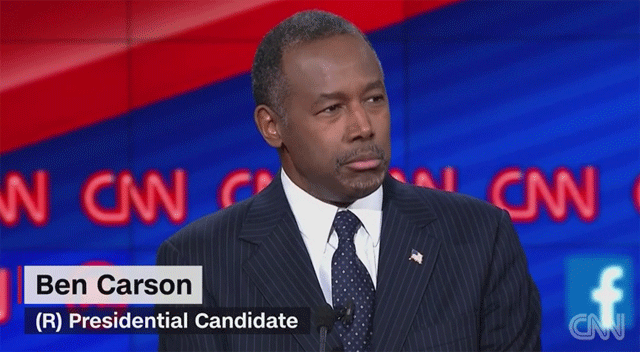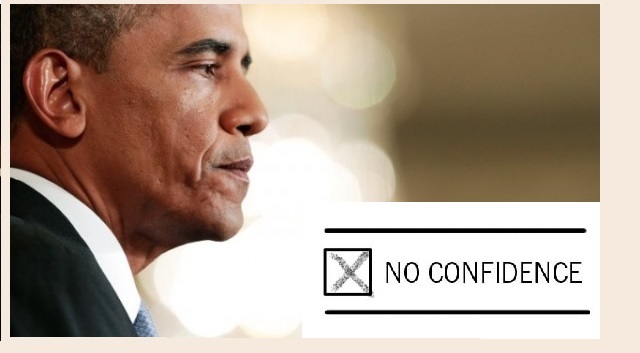Dear Superintendent Alberto Carvalho and School Board Members,
The purpose of this letter is twofold. It seeks your written acknowledgement that district employees have a legal right to use the Miami-Dade County Public Schools (hereinafter “M-DCPS”) e-mail and school mailboxes for formal school related business and/or matters. Additionally, this letter is yet another, albeit more formal and direct attempt to bring to your attention the fact that the district’s tactics, as will be explained in greater detail below, relating to how teachers are treated after they sign-up to or speak at school board meetings must cease and desist for very legitimate and sensitive reasons. In an interesting way, these issues are intertwined in that they both have legal ramifications. Your prompt attention is greatly appreciated.
Employee Use of E-Mail
At first glance, the initial above-mentioned request may appear superfluous or even oxymoronic since it seeks approval to engage in an action for which said approval should be axiomatic. That is, district employees are legally allowed to use district e-mail and/or mailboxes for formal school related business, such as being allowed to send e-mails or place flyers requesting and encouraging the attendance and participation of colleagues in the monthly M-DCPS Board meetings.
Notwithstanding the fact that I am fully aware that sending such e-mails and/or using school mailboxes for the stated purpose would logically fall within the scope of school business and/or school related matters, prior to proceeding, I acted with an over abundance of caution by asking my principal to grant me unequivocal clearance. When I posed my query to her, I added that I did not want any problems with the union stewards at my school, as my actions are constantly being closely scrutinized by them in their attempts to shut me down. Being that my principal, understandably so, also wishes to avoid having any issues with the union stewards over issues of policy, she determined that it would be most prudent for her to run the issue by Labor Relations, such that should there be an issue, it would rest with them rather than with either one of us. I concurred.
Much to my chagrin, Labor Relations told my principal that I was precluded from using M-DCPS e-mail or mailboxes to solicit teacher attendance at school board meetings. Further, they cited the Contract Article XXIII, Section 14. Exclusivity Rights to justify their position.
Section 14, B. Work Location Mailboxes provides:
Pursuant to Article XXIII, Section 15 of the contract, UTD representatives (i.e., UTD building stewards and Union-designated Representatives) shall be afforded access to work location mailboxes.
Section 15. Reasonable Access provides that:
Representatives of the exclusive bargaining agent shall be afforded reasonable access to information during the bargaining process and in the administration of this Contract, such as, but not limited to, access to work locations, work location mail boxes, school system mail delivery service (if legal by U.S. Postal regulations), and work location unit meetings.
But, Labor Relations either intentionally or inadvertently failed to make reference to the following two (2) Articles:
Article XXI. Section K. Freedom of Speech stating:
The Parties agree that since the Constitution of the United States guarantees every citizen the right to free speech, all UTD bargaining [and non bargaining] unit members may speak with the media without fear of reprisal. This right of Freedom of Speech shall extend to any forum in which the employee expresses his/her opinion. Any dispute arising under this provision will not be arbitrable [sic].
Article II. Section 1. Labor Contract Supremacy which states:
All of this Contract shall be subject to Florida Statutes, Chapter 447, including its prohibitions against strikes. The Board further agrees that this Contract shall supersede any Board Policies in conflict with the provisions of this Contract.
Further, and with that said, we would be remiss if we failed to turn to Florida Statute 447 which trumps the Contract between the M-DCPS Board and the United Teachers of Dade.
Florida Statute 447.01(1) provides:
Because of the activities of labor unions affecting the economic conditions of the country and the state, entering as they do into practically every business and industrial practice, it is the sense of the Legislature that such organizations affect the public interests and are charged with a public use. The working person, unionist or nonunionist, must be protected. The right to work is the right to live.
Florida Statute 447.03 further provides:
Employees shall have the right to self-organization, to form, join, or assist labor unions or labor organizations or to refrain from such activity, to bargain collectively through representatives of their own choosing, and to engage in concerted activities, for the purpose of collective bargaining or other mutual aid or protection.
As if the foregoing would not suffice to make the point, it would be worth your while to read the attached articles.
The first article was published by Baker Hostetler is titled “National Labor Relations Board Permits Employees to Use Workplace Email System for Union Activity.” I highly recommend it for the edification of the Labor Relations employee who has inaccurately advised my principal, and is therefore, placing her, not to mention him or herself, in a position whereby my rights as an employee are being violated vis-á-vis the National Labor Relations Act (hereinafter “NLRA”). I will highlight the following as is stated in the article:
The National Labor Relations Board previously held in Register Guard, 351 NLRB 1110 (2007) that an employer may prohibit nonwork-related use of its email system, so long as the employer does not discriminate against concerted activity. [T]he Board overruled Register Guard and found that the employer’s policy was illegal under the National Labor Relations Act. In doing so, [in the ruling of Purple Communications, Inc. 361 NLRB No. 126 (Dec. 11. 2014)], the Board primarily relied on an almost 70-year-old Supreme Court case, Republic Aviation, 324 U.S. 793 (1945), which found that employees had a right to solicit one another for Section 7 purposes (including union organizing) on nonworking time, absent special circumstances. The Board found that this same rule applied to employer email systems, so that employees can presumptively use email for Section 7 purposes on noworking time, “absent a particularized showing of special circumstances regarding the employer’s need to maintain production and discipline.”
The Board emphasized that the “special circumstances” exception to justify a complete ban on nonwork email use “will be the rare case.”
Further, please note that the article goes on to advise employers as follows:
Employers should immediately review their employee handbooks and policies for rules that are inconsistent with the NLRB’s decision. The NLRB has long held that the mere promulgation of an unlawful work rule violated the NLRA, even if the rule is never enforced against an employee.
Please note that in the instant case, as it relates to my specific query, it is not simply a matter of what is written in the Contract, but is in fact more egregious than that since a M-DCPS employee in Labor Relations claims that I do not have a legal right to use the M-DCPS’s e-mail system pursuant to the holding in Purple Communications, Inc. Stated more clearly, Labor Relations is actually in direct violation of the NLRA by way of precluding me from using the M-DCPS’s e-mail system to solicit employee attendance at school board meetings.
The other article was published by the Associated Press and is titled, “NLRB rules workers can use company email to organize unions.” This brief article makes several noteworthy points as follows:
NLRB once again elevated employee-protected activity over employer property rights. Not only will employees now have the ability to use their work emails in their efforts to unionize or discuss terms and conditions of employment with co-workers, an employer’s communication system may also become an incredibly effective tool used to recruit members to form or join class-action cases.
Given the dire legal implications of this issue, I respectfully request that you proceed with haste and inform Labor Relations to modify their response to my principal such that it adheres with and falls within the parameters of the Act.
Workplace Coercion, Intimidation and/or Harassment
It is well documented both in video and in the written form that more than one teacher has expressed feeling coerced, intimidated and/or harassed after he or she either: (1) signed up to speak for a school board meeting; (2) after he or she actually spoke at a school board meeting; and (3) in some cases, both before and after speaking at a school board meeting. Moreover, there is a common theme that resonates in that teachers are told by their administrators that their school is now “on the radar,” and that they (the administration) do not want to be on the School Board’s or Superintendent’s radar. Consequently, many teachers have made, are making and will make the decision to: (1) not even contemplate signing up to attend a school board meeting; or (2) change their minds and decide not to attend and/or speak their minds at the school board meetings out of fear of retaliation or to avoid making bad blood with their administration.
Teachers know all too well of how bad it can be for them when he or she has an administrator who has it in for him or her. Yes, teachers willing and voluntarily forgo their civil liberties, which should be inalienable, and give way to being censored in exchange for being able to live in peace on a day-to-day basis at the workplace. But, no one should directly or indirectly nor overtly or covertly infringe on anyone’s First Amendment rights – period. This is not the price we should pay to live in peace; in fact, there is no price on that, at least not in America. Freedom is free.
Pre-Meeting Misconduct
More specifically, as it relates to teachers feeling harassed prior to speaking at school board meetings, teachers have vocalized, whether on public airwaves, through journalists or amongst each other, that after they have signed up for a school board meeting they have been subjected to one or more of the following tactics as follows:
(1) The teacher is called to the principal’s office at which point the principal explains that he or she has been called by a higher level administrator and/or the Superintendent wanting him or her to ask the teacher why he or she is going to speak at the school board meeting. This meeting usually takes place during the school day and it is not unheard of that the teacher is actually pulled out of his or her class unexpectedly during instructional time to attend this meeting. In case the obvious is not obvious to you, please know that most teachers do not appreciate being “called down” to the principal’s office in such an abrupt and unexpected manner. This practice has a tendency to create high levels of anxiety in the teacher because teachers do not generally get called down to the principal’s office, and if they do, it is usually for admonishment.
(2) The teacher is paid a visit to his or her classroom while he or she is teaching and the visit is not for the purpose of a routine observation, but instead, to be grilled, in front of students, as to why he or she has signed up to speak at the upcoming school board meeting. As with scenario (1) above, teachers feel very uncomfortable with this practice not only because it disrupts instructional time, but because it takes place in front of students. Moreover, it creates an unreasonable sense of urgency and the teacher is psychological made to feel that he or she is the cause for the ambush-style and inappropriate communication; yet, the only “crime” committed was that the teacher merely signed up to speak at a public hearing.
(3) The teacher receives a phone call to his or her classroom during the school day and while instruction is taking place from a higher level administrator wanting to know why and for what reason he or she has signed up to speak. Likewise, the teacher may also receive duplicate phone calls to his or her personal cell phone, as well as e-mails not by just one level administrator but often from multiple level administrators (e.g., regional superintendents and/or from other administrators) all inquiring the same.
(4) The most dreaded and intimidating of all these tactics, from a teacher’s perspective, is when a regional superintendent or the Superintendent, himself, pays a visit to the school. It is no secret that when “downtown administrators” or the Superintendent show(s) up unexpectedly at a school site everyone, especially administration, quickly enters “on the edge” mode for the simple reason that the school is, clearly, being observed. That means that all of the t’s need to be crossed and all the i’s dotted – but without having been afforded advanced notice to cure any irregularities with ample time since there was no warning that the visit would be forthcoming. As a teacher, you do not want to be responsible for being the impetus for such a visit, at least not if you want your administrators to regard you fondly.
(5) It is not uncommon that the same teacher will be subjected to more than one of these practices within a period of a week.
At this juncture and as I write this, I get chills. This resonates with the form of governance typical of dictatorships and totalitarian regimes and is reminiscent of true and personal accounts I have been told and what I have read in history books. I digress.
Being subjected to any (1) through (5), as explained above, leaves the teacher feeling as if he or she is the one who is on the radar. Further, teachers often express feeling hounded by all of these administrators who want to know their intentions for attending the school board meeting. Do not take my word for it, instead watch the YouTube video titled “Attempted Intimidation, Coercion? Watch School Board Meeting of May 20, 2009!,” where two M-DCPS teachers explain the negative impact which these practices impressed upon them as employees. Further, I want to underscore that the advice given by School Board member, Marta Perez, in the video as she requests that the Superintendent cease and desist these practices have been blatantly ignored not to mention very tenuously justified. As an aside, it is my hope that this letter, coupled with a re-viewing of this video, will serve as the final nails in the coffin to put an end to these practices.
Without a doubt, a “reasonable person,” which is the legal measuring stick, if you will, used to gauge whether a person, in fact, feels coerced, intimidated or harassed by a given practice or treatment in the workplace, would feel very uncomfortable after being subjected to one or all of the practices described above. Stated differently, most employees would not voluntarily welcome any or all of these tactics. In fact, a “reasonable person” who signs up to speak at a public hearing would most likely want to be afforded the mental, emotional, physical and intellectual sense of freedom needed to speak publicly and openly without the pressure of feeling that he or she is being closely “watched” or “monitored” by his or her immediate, or even, remote superiors and possibly subject to reprisal for doing so. At this juncture, and to further buttress this position, note that the latter is the very reason why there are whistleblower laws protecting employees who speak out and against their employers. Additionally, and for your perusal, I am attaching an article which was published in Seattle Business, titled “When Does a Workplace Qualify as Being Hostile?” which rather comprehensively, yet succinctly, explains that “[t]he issues and potential liability related to claims of ‘hostile work environments’ are complex and should not be ignored [by employers].”
Post-Meeting Misconduct
Without meaning to be superfluous, I also want to make clear that teachers have claimed feeling coerced intimidated and/or harassed after speaking out at a school board meeting. In fact, that was the case in March of 2015 when a group of teachers addressed the Board on the issue of class size. That is, after the meeting, teachers reported being subjected to (1) through (5), as explained above. Please see the attached article which was published in the Miami Herald and is titled “Some Miami-Dade teachers say speaking out comes at a price.” When a school’s administration realizes that a specific teacher or group of teachers is or are responsible for placing the school “on the radar,” it is often the case that the teacher(s) is(are) brought in for questioning, as administration wants to prevent this(these) teacher(s) from calling the School Board’s attention to the school. I would be remiss for failing to state that if principals do not carry out the orders of the higher level administrators and participate in the hounding of teachers, they will then be the ones subjected to the scrutiny; for this reason, although often times reluctantly, principals proceed as ordered by the district. I know this to be a fact as told to me by a personal friend who is a former and retired regional superintendent. Yes, fact check, this is how it is.
If you are thinking that this can all be dismissed by suggesting that all these claims are a figment of my imagination, keep reading. Teachers have, on more than one occasion, and not just at my school, reached out to me and expressed that they have been subjected to these tactics. They express that these practices are unwelcomed and seek my advice as to how to respond. Most disconcerting, however, is when I hear or sense the angst in their voices or emails and text messages, respectively, and see or feel the fear in their eyes or written words, respectively. This, clearly, has to stop. And, for the record, do not ask me to divulgate the names of these teachers because they have asked that I keep their names confidential.
Additionally, I want to be clear, even at the risk of sounding very redundant, that the reason why I state that the foregoing statements are facts and not figments of my imagination is because I have also personally witnessed how teachers have signed up to attend school board meetings, eager to speak their minds – until one or more than one of these dreaded tactics is/are practiced on them. It is bad enough that many teachers who want to attend meetings cannot due to familial obligations, time constraints or because it would be too onerous for them to travel to the school board meeting because of its location when compared to where they live or work. Now, the few who can go and/or are willing to make the personal sacrifice are being pressured away in droves. Yes, they do tell me that they are scared and that they have changed their minds – or worse. There are the teachers who will not even sign up for the meetings because they have heard of such things, and they want to avoid calling any attention to themselves. They will openly admit to the fear of reprisals. They do not want an unfavorable teaching assignment the following school year nor to be moved to a school that is on the other side of town far from where they live. And, they most certainly do not want to be told at the end of the school year that their contract will not be renewed, and that as such, they are unemployed – just because they spoke out and exercised their First Amendment rights. These are unacceptable intended consequences. It begs the question as to whether this was a motive for doing away with teacher tenure or Professional Service Contracts? Shall tenure be reinstated such that teachers will feel more secure in their positions, particularly when speaking out against the flaws and wrongs perpetuated in the M-DCPS system?
I also speak from personal experience. I, for one, had my administrators inquire as to why I had signed up to speak at the April 15, 2015 M-DCPS Board meeting. My principal was called by Sally Alayon and/or Luis Diaz to find out. It did not matter that I answered my administrations’ questions during a visit to my classroom, their visit was still followed by multiple phone calls from Sally Alayon, North Regional Superintendent, and Luis Diaz, Operations Director. At the time, I made it clear that I did not need any assistance from them since I did not have any issues arising at my school site nor with my administrators, and in fact, I still do not. As of the moment, I have a very good rapport with my administrators, and I feel that they do an excellent job in overseeing operations at our school. I feel that the feeling is mutual. Do not tamper with this relationship. Moreover, the issues which I do have, I explained to all who asked, are best addressed openly and publicly since they relate to matters affecting all teachers.
Because You Asked: Ability of School Board to Address Issues that Matter
Now that you have broached the subject of what issues confound me, and possibly most teachers, and if you really must know, please know that it is the fact that when teachers do speak on matters that affect them, such as: (1) the violation of class size which results in overcrowded classrooms negatively impacting student learning and impeding teachers’ performance; (2) the lack of reliability of standardized test coupled with the fact that it robs students of instructional time and further impedes teachers’ performance; (3) how (1) and (2) contribute to the very laughable Value Added Model which will be, allegedly (because it has not happened yet) and unrealistically used to determine teachers’ performance pay, and therefore remunerate them inequitably and unethically; and last but not least, (4) teachers’ decimated salaries and benefits – all – fall on deaf ears. M-DCPS Board acts with impunity and lack of accountability as it continuously claims that anything and everything is either the union’s doing or is attributed to the Legislature’s shortcomings. And, if that is, in fact, the case, then there is the legitimate and timely question which I posed publicly last month in the October school board meeting.
Perhaps the moment is ripe to pose the question: What then, is the purpose of the M-DCPS Board and has it run its course? Should teachers respectfully demand that we receive more from the Board than merely those electronic newsletters, provided for at taxpayers’ expense and which usually go unread, wherein the Board displays photo ops showing the accolades earned at the school level and for which the Board did not materially contribute to since the manifestation of those accomplishments result from the hard work of administrators, teachers, students and parents? Can’t those photo ops just be placed on the schools’ newsletters and trim the Board’s budget as you do to teachers’ salaries? Perhaps if the Board implemented austere economic measures even handedly and commensurate with the ones the Board has imposed on teachers’ salaries, claiming insufficient funding, then perhaps the Board may also find time for more political activism, which better suits the Board, as Board members are political elected officials not socialites. More specifically, the Board could spend time addressing the shortcomings of the Legislature which are brining teachers to their knees financially – according to you. But, who is the Board kidding? Well-informed teachers know that funding from the State of Florida per student has been abundant and has even increased with each passing year for most of the past decade – interestingly, the same span of time during which teachers’ salaries have been decimated through the reckless and negligent salary negotiations of the United Teachers of Dade Union, which rather than refute the claims made by the Board, that there is insufficient funding, acquiesces and panders to the Board’s political and economic agenda instead of aggressively representing the financial interests of its membership and all teachers alike. I am also alluding to the fact that the better measure of austerity would be to simply dismantle the Board such that the real stakeholders in education who are the administrators, teachers, students and parents can take center stage once and for all and not only stand to earn more financially but also better manage M-DCPS. If we, those in the trenches, were left in charge, it would free up thousands of dollars in administrative salaries and overhead which is for not, as the Board has openly and publicly admitted itself, whether individually or collectively, many times over.
The bottom line is that even when it appears that the Board is listening to us attentively, our concerns are never addressed, much to the contrary, they fade into the airwaves after they echo the walls of the auditorium where the school board meetings take place. And if they are addressed, when a public speaker’s three (3) minutes are up, the Board engages in a controlled message monologue which usually supplants, as well as misrepresents and distorts the facts made by the previous public speaker while giving him or her no opportunity to rebut or further clarify the often erroneous and self-serving Board member’s misstatements. It is very frustrating and leaves the public speaker feeling impotent to address any wrongs. And how can I say this with such certainty, you may ask. Simply put, from the numerous times that I have personally addressed issues at a school board meetings none of them have ever been addressed, and if they have, it has been as I described. Which makes a “reasonable person” question the sincerity and true motives of the above-mentioned tactics, (1) through (5), and whether they are really being carried out with the intention of wanting to address teachers’ concerns? At times, many of us even wonder whether you listen to us as we speak at school board meetings because it is not uncommon that while a public speaker attempts to engage the Board, its Board members are either on the phone, interacting with their cell phones or simply sneak out through the back doors. The public which is listening on the radio cannot see this nor can those watching the Board meeting on television since the cameras only focus on the public speaker speaking at the podium; those in the audience who are watching the School Board meeting, in person, however, can attest to what I just said. Going forward, I suggest that there should be a split screen view of the meeting.
Conclusion
In the interest of equity and for the sake of following the rule of law, I respectfully request the M-DCPS Board agree to the following in an open acknowledgement:
(1) M-DCPS employees shall be allowed to use district email for purposes of soliciting the attendance of colleagues at M-DCPS Board meetings and/or for any and every other work related purposes; and
(2) employees who sign-up to speak at M-DCPS board meetings will be free of any of the above-mentioned tactics which have not only been brought to your attention previously, on multiple occasions and through multiple forms of media but which are also deemed to be coercive, intimidating and/or harassing as thoroughly explained herein.
I thank you for your time and mindful attention to these issues. I look forward to a timely and written reply in the very near future acknowledging that teachers, in time for the November school board meeting, may use the district e-mail’s system to solicit attendance and will be left in peace to do just that, including after they sign-up and/or speak at the school board meeting. Please, do not ignore my letter, as no one appreciates being dismissed. Remember, “Values Matter!”
Very Respectfully,
Thais M. Alvarez
cc: Annette H. Weissman, Principal, Sunny Isles Beach K-8
Sally Alayon, North Regional Superintendent
Luis Diaz, Director of Operations
















 A
A




